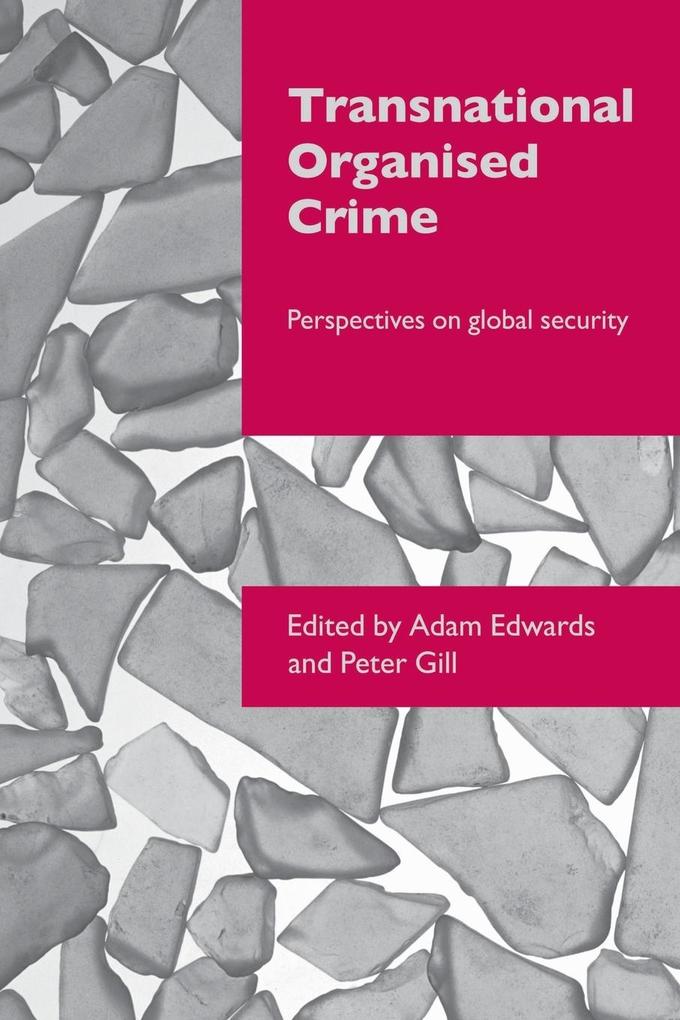Bücher versandkostenfrei*100 Tage RückgaberechtAbholung in der Wunschfiliale

Zustellung: Mi, 12.02. - Sa, 15.02.
Versand in 6 Tagen
VersandkostenfreiBestellen & in Filiale abholen:
Considers the origins of transnational organised crime, how it has been defined and measured, governments' policy responses and its place on the policy agendas of the UN and EU in the wake of the 'war on terror'.
The perceived threat of 'transnational organised crime' to Western societies has been of huge interest to politicians, policy-makers and social scientists over the last decade. This book considers the origins of this crime, how it has been defined and measured, and the appropriateness of governments' policy responses. The contributors argue that while serious harm is often caused by transnational criminal activity - for example, trafficking in human beings - the construction of that criminal activity as an external threat obscures the origins of these crimes in the markets for illicit goods and services within the 'threatened' societies. As such, the authors question the extent to which global crime can be controlled through law enforcement initiatives and alternative policy initiatives are considered. The authors also question whether transnational organised crime will retain its place on the policy agendas of the United Nations and European Union in the wake of the 'war on terror'.
Inhaltsverzeichnis
Part 1: Origins of the Concept 1. Transnational Organised Crime: The Global Reach of an American Concept 2.Europe's Response to Transnational Organised Crime 3. Global Law Enforcement as a Protection Racket: Some Sceptical Notes on Transnational Organised Crime as an Object of Global Governance Part 2: Measurements and Interpretations 4. Measuring Transnational Organised Crime: An Empirical Study of Existing Data Sets on TOC with Particular Reference to Intergovernmental Organisations 5. Classify, Report and Measure: The UK Organised Crime Notification Scheme 6. The Network Paradigm Applied to Criminal Organisations: Theoretical Nit-picking or a Relevant Doctrine for Investigators? Recent Developments in the Netherlands 7. Transnational Organised Crime: A Police Perspective Part 3: Case Studies 8. Bad Boys in the Baltics 9. Controlling Drug Trafficking in Central Europe: The Impact of EU Policies in the Czech Republic, Hungary and Lithuania 10. Recognising Organised Crime's Victims: The Case of Sex Trafficking in the EU Part 4: Current and Prospective Responses 11. The Legal Regulation of Transnational Organised Crime: Opportunites and Limitations 12. Countering the Chameleon Threat of Dirty Money: 'Hard' and 'Soft' Law in the Emergence of a Global Anti-money Laundering Regime 13. Criminal Asset Stripping: Confiscating the Proceeds of Crime in England and Wales 14. Proteiform Criminalities: the Formation of Organised Crime as Organisers' Responses to Developments in Four Fields of Control 15. Organised Crime and the 'Conjunction of Criminal Opportunity' Framework 16. After Transnational Organised Crime? The Politics of Public Safety
Produktdetails
Erscheinungsdatum
29. Juni 2006
Sprache
englisch
Seitenanzahl
306
Reihe
Organizational Crime
Herausgegeben von
Adam Edwards, Peter Gill
Verlag/Hersteller
Produktart
kartoniert
Gewicht
468 g
Größe (L/B/H)
234/156/17 mm
ISBN
9780415403399
Entdecken Sie mehr
Pressestimmen
'A significant contribution in the field of criminology.' - Global Crime
Bewertungen
0 Bewertungen
Es wurden noch keine Bewertungen abgegeben. Schreiben Sie die erste Bewertung zu "Transnational Organised Crime" und helfen Sie damit anderen bei der Kaufentscheidung.









